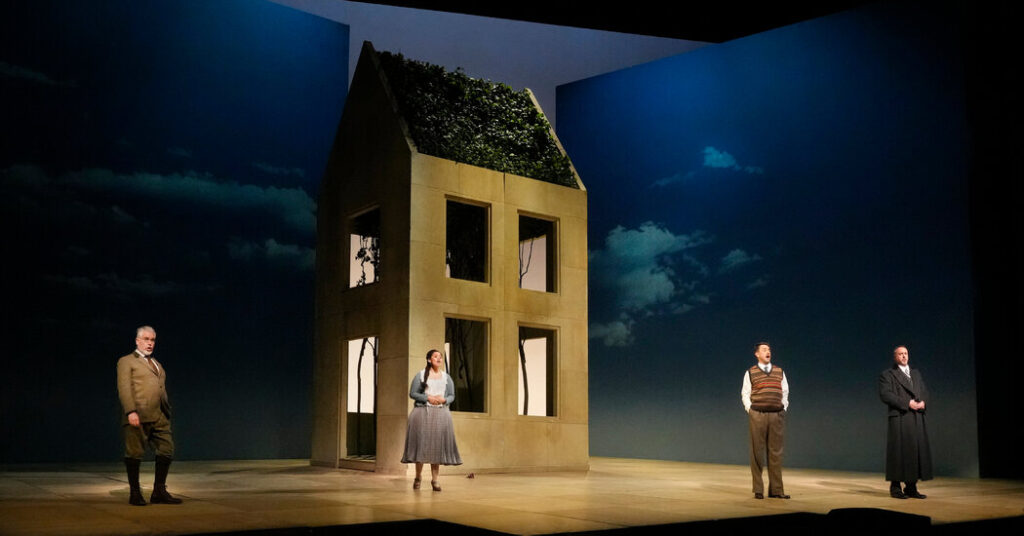
Just before the end of this milestone comeback season at the Metropolitan Opera, the slot has returned.
That slot? Connoisseurs know it as the run just before the company’s summer break, when the Met programs a short revival — three, maybe four performances — of a slightly off-the-beaten-path title. In the past it’s been works by Janacek (in May 2020, it was to have been “Kat’a Kabanova”), Britten’s “Billy Budd,” Poulenc’s “Dialogues des Carmélites.” It’s catnip for opera-lovers, a bit of dessert after a monthslong feast.
In spring 2015, the slot was taken by Stravinsky’s “The Rake’s Progress.” And in spring 2022, it is again. A restrained take on this sophisticated work, it opened on Monday and runs for three more performances, through June 11.
The libretto, by W.H. Auden and Chester Kallman, is based on a suite of Hogarth paintings about a young man who squanders his inheritance and goes insane. The opera adds a Mephistophelian figure who tempts Tom Rakewell from the straight and narrow with riches and women — for a price.
Stravinsky’s score evokes the 1700s of Hogarth, Pergolesi and Mozart, infusing the airy, cool-water lucidity of that era with the angular rhythms and tart harmonies of the mid-20th century. The music at first blush can seem genially nostalgic — until you open your ears to its jolting unsteadiness and darker ambiguities.
The conductor, Susanna Mälkki, led the orchestra most memorably in passages of eeriness and tenderness, as in the nocturnal glow of the prelude to the graveyard scene in the final act. Moments of grandeur and bursting passages of lively unevenness, though, felt like they were still settling in on Monday.
The tenor Ben Bliss, as Rakewell, was less wide-eyed from the start than some singers, his tone bright and endearing. As in Mozart’s “Le Nozze di Figaro” earlier this season, the soprano Golda Schultz’s voice was silky and mellow as Anne Trulove, Tom’s put-upon girlfriend, and she managed to project innocence without ingenuousness. And making her company debut as Baba the Turk, the bearded diva Tom marries, the mezzo-soprano Raehann Bryce-Davis had a vibrant presence and a grounded sound, elegant in her graciousness to Anne.
Adding another devil to his Met repertory after playing the title role in Boito’s “Mefistofele” in 2018, the bass-baritone Christian Van Horn sang Nick Shadow with sturdy, straightforward resonance, though not much seductive insinuation. There were stylish turns in smaller roles from James Creswell (Anne’s father), Eve Gigliotti (the madam Mother Goose), Tony Stevenson (the auctioneer Sellem) and Paul Corona (the keeper of the asylum).
With its blue-skies flats and acutely angled cityscape, Jonathan Miller’s production, first seen here in 1997, is echt 1990s Met: simple, stylized, a little off-kilter, with surreal plays of scale. (See also Miller’s 1991 “Kat’a Kabanova” staging, with its doll-size houses, and the stories-tall nymphs of Elijah Moshinsky’s 1993 “Ariadne auf Naxos.”)
At 25, the show is looking a bit scuffed. But the action is clear — and, as ever, the lullaby Anne sings to Tom in the madhouse near the end rends the heart, a benediction over a troubled man and a troubled world.
The Rake’s Progress
Through June 11 at the Metropolitan Opera, Manhattan; metopera.org.

